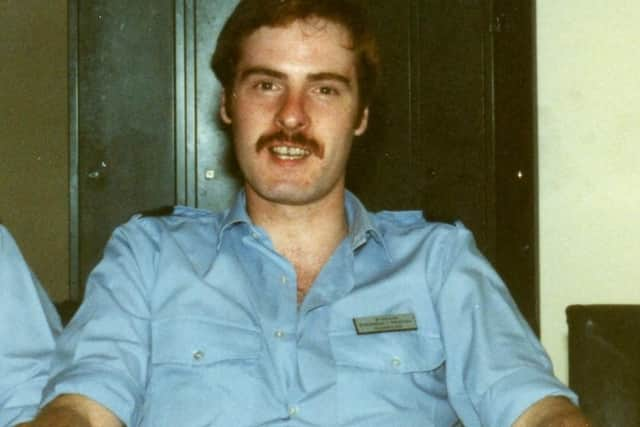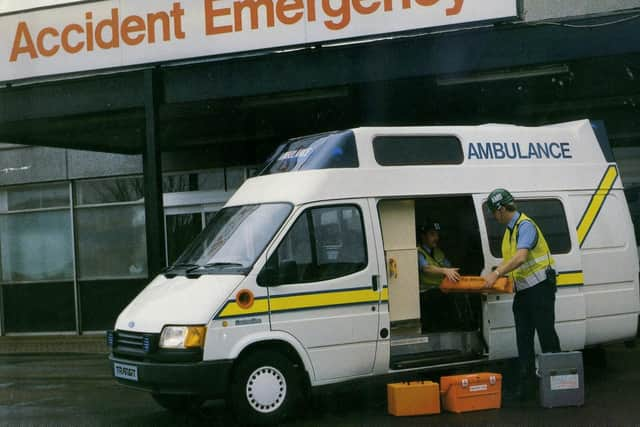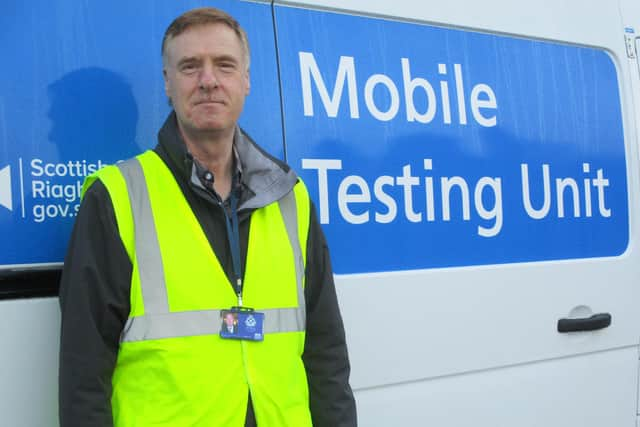Scotland's first ever paramedic comes out of retirement to help with Covid recovery
Bill Mason, 64, will be helping to supervise mobile testing units with the Scottish Ambulance Service.
His return to the workforce comes 50 years after the first six paramedics in Britain began work in Brighton, in March 1971. It was not until 1979 that a limited training programme for paramedics was rolled out across the UK.
Advertisement
Hide AdAdvertisement
Hide AdBefore this point, ambulances were mainly seen as transport to hospital and provided limited first aid.


Mr Mason was selected to represent Scotland as part of a group of ten paramedics trained at Banstead, Surrey, qualifying in the profession in 1986.
He went on to work and train other paramedics in Glasgow, Edinburgh and Dundee before retiring in 2011.
The 64-year-old, who now lives in Fife, says he is keen to do his part until life returns to normal.
Mr Mason said: “When Covid-19 became a pandemic, I immediately volunteered to help and was signed up to work as a supervisor with the mobile testing units, which are operated by the Scottish Ambulance Service.


“I have made the commitment to stay until things improve and get back to some kind of normality.
“It is an important job in the frontline, and we all want to help our fellow Scots and contribute to the health and wellbeing of Scotland.”
Mr Mason remembers that back in the 1980s, some in the medical profession were unused to the role of a paramedic.
Advertisement
Hide AdAdvertisement
Hide AdHe said: “It also took a wee while to build the trust and confidence of other medical and nursing practitioners facing this new breed of ambulance person. The vast majority were very helpful and encouraging.


“It was very rewarding to us to see patients improve more rapidly than before and to know that you have made a major contribution to their lives.
“One of the scarier moments was using a manual defibrillator, but it also brought great joy when a person was successfully resuscitated and you might meet them later, knowing that it was unlikely they would have been saved without those paramedic skills and ‘new’ equipment.”
On first putting his paramedic training into practice back in 1987, Mr Mason recalls: "It was both exciting and nerve-racking, not only for improving the patients care, but also representing the hopes and aspirations of colleagues who wished to become future paramedics.
“It also took a wee while to build the trust and confidence of other medical and nursing practitioners facing this new breed of ambulance person. The vast majority were very helpful and encouraging.”
Pat O’Meara, general manager of the ambulance service, said: “Bill Mason was well known and liked within the Scottish Ambulance Service as a long-serving member of staff in both operational and managerial roles.
“His decision to come out of retirement to work as a supervisor for our mobile testing units (MTUs) is testament to his dedication.
“We’ve found that several of our retired colleagues have chosen to work on MTUs to support our response to the pandemic.
“Their skills and knowledge is invaluable in helping us to reach as many as possible in communities across Scotland, to help in the fight against Covid-19.”
Comments
Want to join the conversation? Please or to comment on this article.